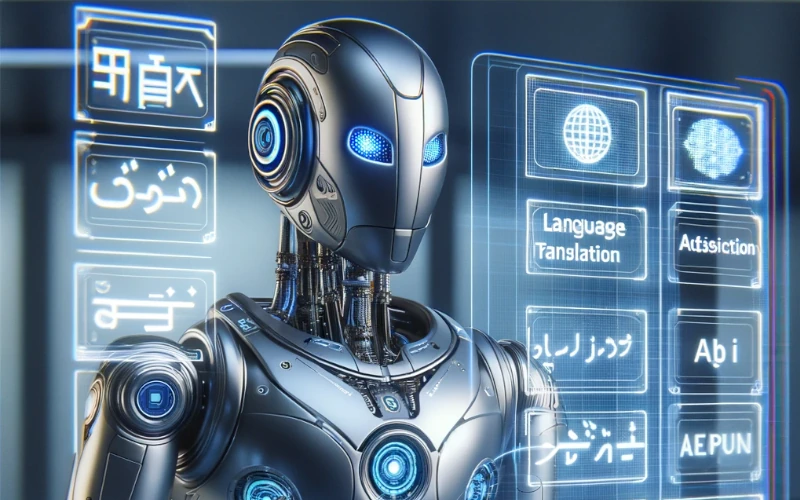If you are willing to become a translator or already work as one this article may be useful for you. Above all, nowadays all specialists in their fields try to integrate artificial intelligence (AI) into their working routine because it may facilitate many repetitive processes. However, you may be wondering whether artificial intelligence can help you with providing translation services or translating some documents for studying or other purposes.
Translators Have Been Using AI Before it Went Viral
In fact, you have more likely already used artificial intelligence during translation before AI went viral all over the world.
Many people are used to thinking about the era of AI starting from 2022 when such AIs as generative AI and chatbots became accessible to everyone. This perception is based on the fact that every person can use AI for their own good now. The AI can now be used by ordinary people who may wish to use it for their routine tasks such as doing homework. Besides, you can read more about how to get quick and high-quality help with homework by following this link.
While some people may think that AI started its development in the 2020s it is a misconception. Scientists have been working on the development of AI since the 1900s and 1950 was the year when AI was first introduced to humanity or rather that narrow circle of scientists who were aware of these technologies. If you want to know more about the history of AI development, you can visit this web page.
Nevertheless, translators and people who often need to translate different words and phrases online used AI for translations for many years without thinking of the background operations that are going on when you use the online translator.
You are probably aware of such online translators like Google Translate or DeepL. Online translator’s operation is based on AI technologies. The algorithms used in these translators analyze the huge data sets of text which has been previously translated between a specific language pair. The databases of these translators include information about typical translations of specific words and phrases which the online translators consequently use to translate the text you request.
Online translators work effectively because of a few AI techniques such as natural language processing (NLP) which has significantly improved the quality of translation over the years. NLP was designed to make the translational process more natural and context-relevant. It means that online translators now are not only providing a rough translation of phrases but also mind the context of these phrases by analyzing the whole passage of text.
Can I Use Generative AI for Translations
While professional translators use specialized machine translating software which also works on the basis of AI you may be interested in whether you can use a simple generative AI for translation.
The name of the generative AI hints at its roles and possibilities: it creates something. Indeed, generative AIs such as ChatGpt can help us generate the following:
- Text: articles, podcasts, blog posts, research papers
- Images: pictures, maps, guides, portraits
- Videos and audio: marketing campaigns, short movies, songs
As you can see, generative AI can help people with a lot of things. However, can it help us with translation? There is no final answer to this question.
While generative AI answers such requests as translation of simple phrases or picking up of the possible translation options for some words they may cope with more extensive tasks worse. We will provide you with a few reasons why generative AI will not help with the translation of extensive documents:
- Native speaker: while generative AI can help you with some simple translation they usually can provide assistance in their own language. For instance, the native language of charity is English. Therefore, these AI will have problems in providing you assistance in different languages such as German. As a result, AI is not created for translations and does not have a huge database of phrases and matches with different languages. Therefore, it will provide a poor translation which cannot be called professional.
- General knowledge: although generative AI has access to various sets of information in different fields it still cannot provide qualitative translation. AI would not be able to provide you with high-quality matches that require knowledge of professional concepts and a strong theoretical background. Hence, AI would not be able to assist you in such complex fields as finance, law, life sciences, or business.
- AI is straightforward: artificial intelligence would not understand the tone of the text. AI cannot understand where the humor or sarcasm is used, so it would not be able to transfer the idea of the original text. It would also not be able to understand who you are referring to and how personal the text should be. It will still address your friend as your colleague and would not be able to differentiate between the president or your family member.
Therefore, you would not be able to use generative AI to provide professional translation services.

Arslan Hussain, founder of The Different Languages, is an experienced translator passionate about languages and cultures. Through his website, he shares his knowledge and love for different languages, making learning accessible and enjoyable.

